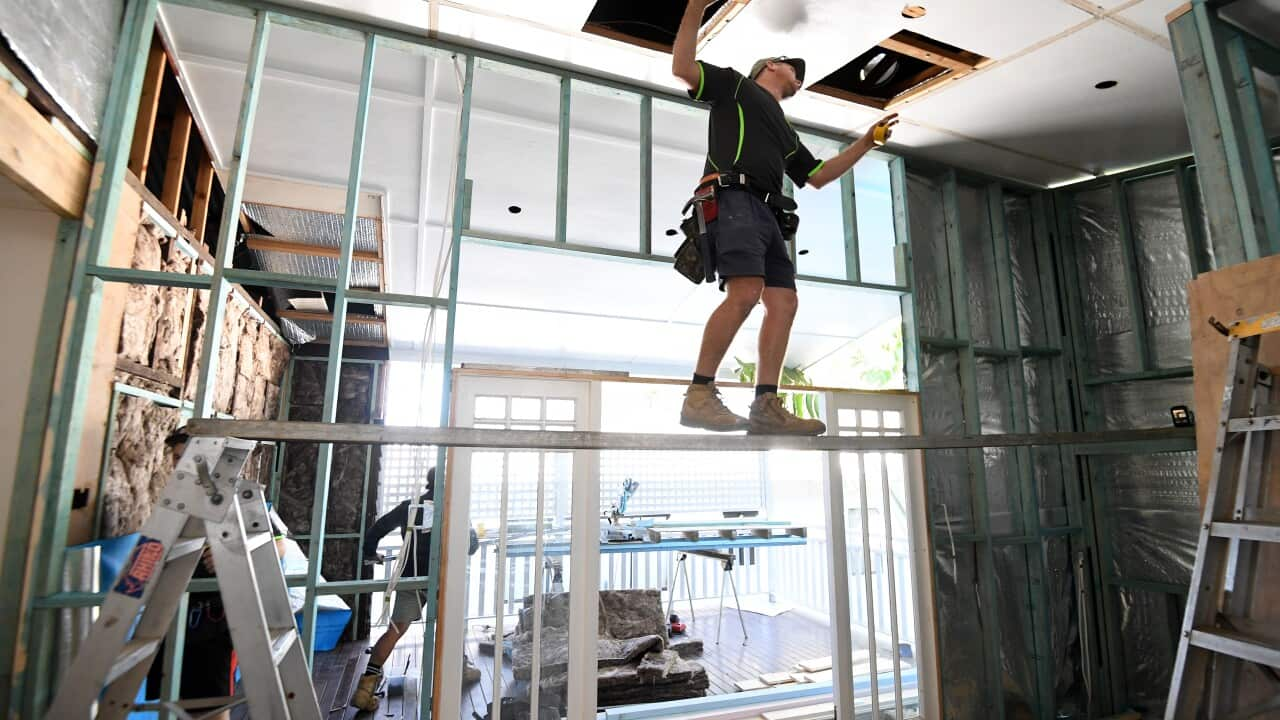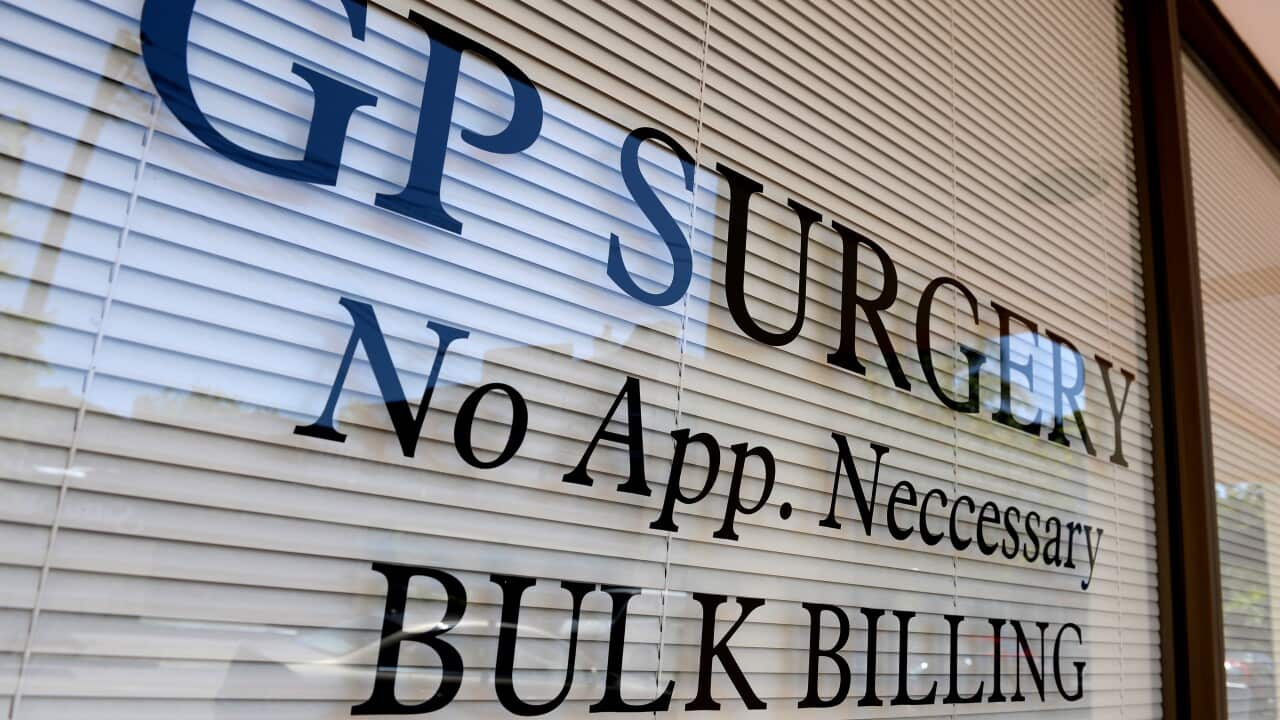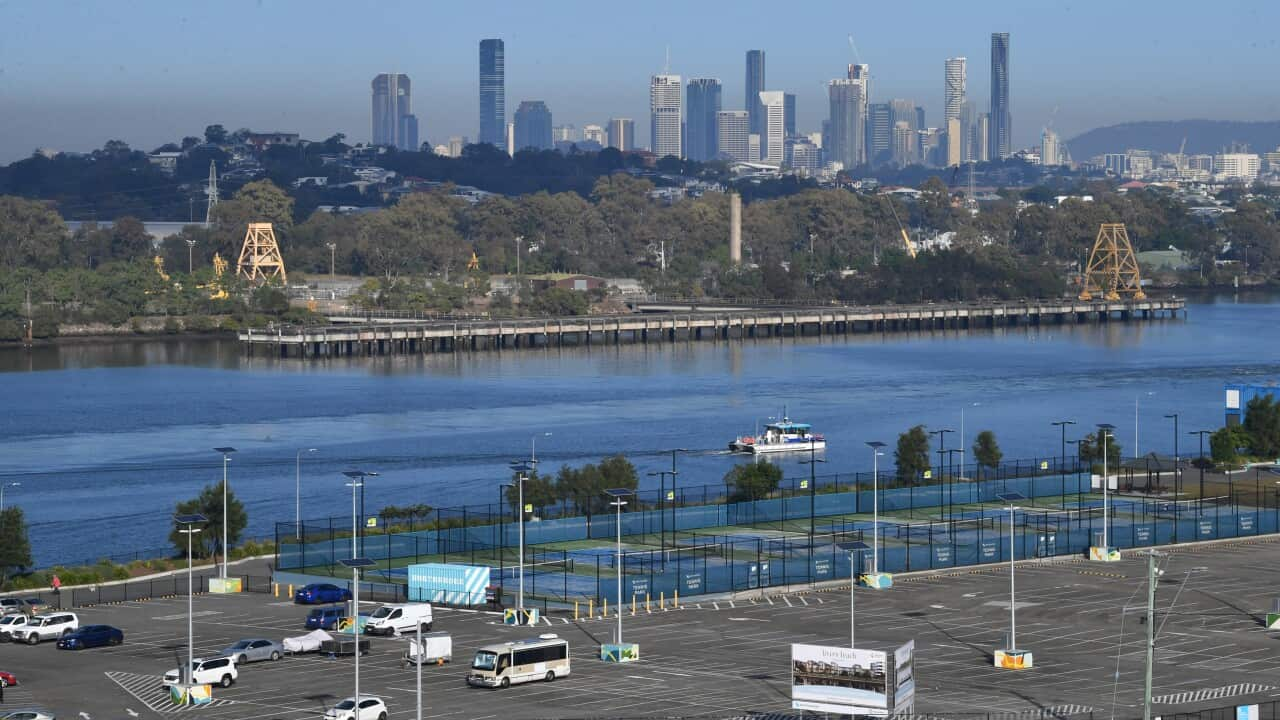Key Points
- International students face difficulties in renting accommodation, with even one room hard to come by in popular areas
- Home Affairs says international students must be aware of the cost of studying in Australia and be able to cover these expenses
- Rents have risen by more than 20 per cent in several Australian capital cities as vacancy rates fall to record lows
On August 6, University of Melbourne student, Ronnie Yi, returned to Australia after two years of remote learning in China.
Before coming back, he lived in a 200-square-metre house in Beijing's busy Chaoyang district, but now, he is living in a student flat measuring just 16 square metres, which costs him $519 per week, because he failed to find accommodation at short notice.
Mr Yi told SBS Chinese that there are three types of studios in the complex in which he lives, the largest of which is 24 square metres and rents for $645 per week.
He jokingly refers to himself as “a snail's space dweller”. A fridge, microwave, desk and a bed wedged between two walls are all the furniture he has.
Sometimes it can be a bit depressing because my place is still too small. It would be more comfortable if there was a living room. Sometimes I need to go outside to change my mood.Ronnie Yi
Even though Mr Yi says he thinks that student accommodation is overpriced, he has no choice with six months to go before he graduates.
"Most properties require a 12-month lease and rarely allow a six-month, short-term rent, which is unsuitable for me," he said.
Since the re-opening of Australia's international border, and as of August 30, it has been reported that a total of 5.72 million international travellers have entered the country.
More than 323,300 student visa holders have arrived and over 20,000 of them departed directly from China.

Ronnie Yi lives in a 16-square-metre student apartment for $519 per week. Source: SBS / Nicole Gong
A sought-after property can sometimes have dozens of applicants, some of whom offer a higher rent or pay three months' rent in advance to get an edge over competitors.
A spokesperson from the Department of Home Affairs told SBS Chinese that international students had to be aware of the cost of studying and living expenses in Australia as part of their application preparations.
“In order to be considered for the grant of a student visa, amongst other things, applicants must demonstrate or declare that they have sufficient funds genuinely available to them to cover these expenses while studying in Australia,” the spokesperson said.
According to the Australian Bureau of Statistics (ABS) Census data released in early July, more than 30 per cent of the country's population is renting. Meanwhile, housing vacancy rates in several Australian capital cities have fallen to historic lows.
that Melbourne's residential vacancy rate peaked at 4.7 per cent in December 2020 during the national border closure.
However, it has since fallen from 3.2 per cent last December to 1.6 per cent this July since the border reopened, reaching the lowest point in the past three years.
At the same time, rental growth rates broke records , with the average rent in Melbourne reaching $495 per week in August, surpassing the all-time high of $485 per week in February 2020.
Annual rental growth rates in West Melbourne, Melbourne City, Docklands and Southbank were 34 per cent, 33.6 per cent, 33.2 per cent and 32.6 per cent respectively.

Melbourne's residential vacancy rate fell to 1.6 per cent in July, the lowest point in the past three years. Credit: SQM Research
Last resort: fee-based rental services
Ms Chen, from Guangzhou, China, was another international student who returned to Australia in August. Ms Chen only revealed her surname to SBS Chinese out of privacy concerns.
She says her return plan had dragged on for six months as she had not been able to find an apartment in Melbourne.
"I didn't expect the competition for renting to be so fierce. I've had friends go to the inspections of nearly 20 places for me and I applied for them all afterwards, [I] even tried to pay a higher rent but I didn’t receive any offers," Ms Chen said.
“At least 60 per cent of the properties I applied for went unanswered. I didn't know if I was successful or not until the ad for the property was taken down, then I realised it was taken.”
She says she had no choice but to turn to a fee-based rental service agency.
After paying the $550 service fee, she managed to secure a one-bedroom, one-bathroom apartment in Docklands, Melbourne, just a week before her departure.
Finally, I have a home, which gives me a sense of belonging. I've been anxious about renting this year.Ms Chen

The price list of an institution offering rental services in Australia. Source: Supplied
Its service guide outlines the different service fees charged for different apartment types. The service fee to rent a one-bedroom, one-bathroom unit is $550; a two-bedroom is $660; and a three-bedroom and above is $880 (including 10 per cent GST).
When Ms Chen was about to sign the contract, she says she was unexpectedly asked to pay three months' rent and a month's deposit in advance, totalling $8,692.
"I would definitely reckon such demands to be unreasonable in the past, but now I'm in the passive position of desperately needing a house, I have to do whatever I’m required to do," Ms Chen said.
Problems after moving in
After moving in, Ms Chen says she realised that there were a number of problems with her new accommodation.
A lot of personal belongings had been left behind by the landlord, there was a viaduct in front of the house, and the dust and noise from a construction site across the street all "drove me crazy", she says.
"The bedroom is near the train line side and you can hear the trains going by at night when you’re trying to get to sleep.
"There's a construction site across the street, which brings massive noise and dust, so the balcony is unusable."

The construction site in front of Ms Chen's accommodation in Docklands. Source: SBS / Nicole Gong
As long as the house looks okay, don't mention its shortcomings. Just list out three good reasons, ignore the bad, then the deal can be done very quickly.Mr L
Mr L admits that it was not uncommon for students to find discrepancies between the actual condition of a house or apartment and what they had seen from the inspection videos.
He says he rarely mentions the location and surroundings of a house or apartment when he introduces it to his clients.
"I don’t have time to think about that. After going to one inspection site, I have to rush to the next site. There is generally very little thought given to these issues," he said.
Rental costs generally higher for Chinese students, says real estate agent
Richie Pan, a real estate agent from Triple S Rental in Sydney, told SBS Chinese that he was impressed with the surge in the number of tenants this year and how easy it had become to rent out properties.
"Sydney experienced a huge influx of tenants and we were a bit overwhelmed because there weren't that many properties on hand," he said.
"In popular areas of Sydney, like the houses in central park, there were over 30 groups there on open days and the floor was full of shoes and people were queuing."

One of Mr Pan's clients raised the rent by $150 per week to ensure they landed a highly competitive apartment in Sydney. Source: Supplied
"International students may go and pile on (rent) in some rental hotspots because they don't know much about renting in Sydney, which leads to high rents (across the board)," Mr Pan said.
"Local students won't go for a competitive area because they know which places are less expensive to rent but are (still) convenient to live in.”
According to the latest data from SQM Research, the average rent in Sydney in August was $648.86/week, surpassing the previous all-time high in February, 2018, of $627/week.
Average rents in Sydney have increased by more than 20 per cent overall during the past 12 months.

Weekly rents in Sydney have risen at varying rates, with an average increase of 20.2 per cent over the past 12 months. Credit: SQM Research
Landlords price their homes in line with market fluctuations.Richie Pan
"The previous period of a hot rental market had already driven up landlords' expectations, so it was impossible to bring it [the rent] down all at once," he said.
Last month, the Greens called for and they want to see increases capped at two per cent every two years after the freeze ends.
However, the proposal has not yet been passed through federal parliament and some economists say that a rent freeze would not really solve Australia's rental crisis.
*Name disguised for privacy reasons.













